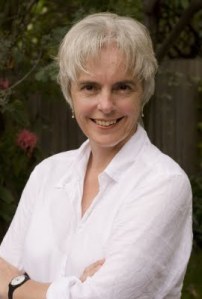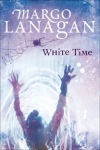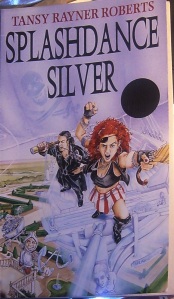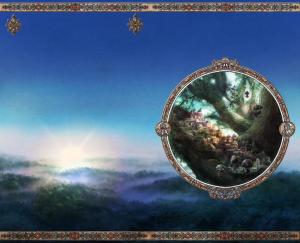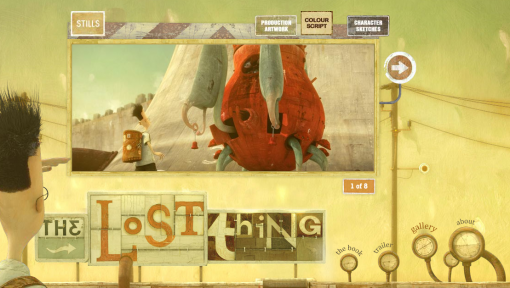As the next of my series featuring fantastic female fantasy authors (see disclaimer) I’ve invited the talented (and slightly weird in the best possible way!) Margo Lanagan to drop by.
Watch out for the give-away question at the end of the interview.
Q: As a writer who has a foot firmly in two camps, the literary world and the fantasy world, do you find readers react differently to your books depending on whether they are genre readers, or literary readers?
Literary readers can sometimes make a bit of preliminary apologetic noise about how they don’t read much in the way of fantasy. (I’m talking about face to face reactions here.) And they can be more unnerved by the weird content that genre readers take in their stride. That’s probably about the extent of the difference—and that’s also a gross generalisation, too, on my part! There are as many degrees of enthusiasm/indifference/puzzlement in one camp as in the other.
Q: Your short story collections or individual stories/novellas have won three World fantasy Awards. (Black Juice – Anthology, Singing my Sister Down – Fantasy Short Story, Sea-Hearts – Novella).Do you think of yourself as primarily a short story writer, or are you novel writer who wandered into short stories by chance?
At first I was a poetry writer, who wandered into novel writing in a bid to get some readers, any readers—also to enjoy the capaciousness of the form. Then I got myself into a whole bunch of trouble biting off HUGE novels that I could not chew, so I ran screaming to the short story to save my sanity. Yes, that’s pretty much how it went.
Q: There is a surreal quality to your short stories. Many of them feel as if they happen in our world, with a slight twist. In an interview on SF Site you said: ‘the balance of the real and unreal in my stories is pretty much how I see the world. Some weird small thing in the real world strikes me (like misreading a magazine title Modern Bride as Wooden Bride, out of the corner of my eye) and my mind just builds and builds on it until there’s a whole other world there, full of wooden brides! (This is a Black Juice story.)’ Have you always viewed the world through this surreal lens? And conversely, when did you realise that other people didn’t see the world as you see it?
Oh yes. I’m the third of four daughters, and I discovered early that the way to get attention was to be the clown. Making people laugh, by noticing that sort of thing, was my role in the family. I didn’t realise it could be put to wider use for quite some time, until my realistic-story ideas started getting weirder and weirder. Then I twigged that there was a whole fantasy genre over here, ready to welcome me in with open arms!
Q: Your latest novel Tender Morsels, which was a joint winner of the Best Novel World Fantasy Award in 2009, was published many years after your previous novel Touching Earth Lightly (1996). Was Tender Morsels novel a long time in gestation? Or did you work on others novels in the mean time.
Oh yes yes yes I worked on other novels, and you know it, Rowena! 😀 There was the Big Fantasy Brick with which I broke my own back; then there was the junior fantasy quartet, which also grew and put out tentacles and complicated itself until it was insupportable. Then came the aforementioned running screaming to short stories, and then Tender Morsels was the pick-on-something-your-own-size project that I finally managed to complete. It really was quite efficient once I got going, taking about 18 months to complete.
Q: I see your Selkie novel, called Watered Silk, is due out in 2011. Can you tell us a little about it?
Ah, the selkie novel. *weeps a little* The selkies so far have accumulated three titles, one for each market (Aus, US and UK). And their publication in Australia has been put back until probably February 2012, because they need a second round of structural editing, probably because the first round was done in a tearing hurry just before Christmas last year.
All I can say about the novel (because it’s changing under my hands even as I speak), is that it’s very watery, very silky and very, very sad. It has a madly atmospheric fictional-version-of-the-Hebrides setting; there’s a witch at the centre of the story of whom I’m very fond; and pretty much everyone in it has a thoroughly heartbreaking time. I think my next novel will have to be some kind of ‘romp’ to compensate.
Q: Much of your work (stories and books) is described as YA. In an interview on Tabularasa you said: ‘I think the attraction of writing fiction for younger people is the escape into characters’ lives who haven’t yet made decisions that will set them up for a predictable path through life. But I also like the fact that characters are encountering things for the first time, or just starting to make sense of the world, or just starting to question the world that they’ve found themselves in.’ Do you still set out to write for the YA market or is it just that the stories that come to you have YA aged protagonists?
I try not to think too carefully about markets when I write (yes, that is the sound of my publishers’ eyes rolling, in the background). Probably my attitude can best be summed up as avoiding putting explicitly unsuitable-for-YA-readers material in the novels. I still find the young-adult stage of life the most interesting to explore, for the same reasons as you’ve quoted; it’s partly escapism from the kinds of middle-aged issues I find I’m having to face now—a kind of making-over of my own life, perhaps, in my head.
Q: In an interview on Meanjin you said that you write longhand. Do you still do this, and if so what is it about writing longhand that appeals to you?
Yes, I still do it. My day-job work involves keyboarding, so sitting at a keyboard doesn’t set up the right vibe for me, for creative writing; it feels as if longhand writing taps into my writing-brain more readily. Also, it just provides variety of hand movements, so forestalls RSI a bit longer—I know, it all has to be typed up eventually, but transcribing is a much more relaxed form of typing than composing, so it’s less likely to result in injury. And I like the concrete evidence of pages piling up on the left as I do my day’s quota—that little message at the bottom of the screen, ‘Page 4 of 4’ just doesn’t do it for me the way crinkly pages of messy handwriting do.
Q: In a guest post on Justine Larblestier’s site you said: ‘Sometimes you have to lie fallow for a while, remove yourself far enough from your own words, your own style, that you can come at them afresh later. Sometimes there’s a good story waiting, but your subconscious hasn’t worked out how you’ll approach it yet. Leave it alone; let it grow …’ What do you do, when you need to let your subconscious do the work?
It depends on time constraints. Sometimes the deadline is so pressing that a task like washing the dishes is all the time you can spare from the story—something manual and mindless like that is good. A walk, a movie that wrenches you completely out of the story’s mindset, some music, a trip away or perhaps just the passing of a normal working week/month—all these activities are useful for putting distance between yourself and the story and letting it cook without you getting in the way. Sometimes you need to hold the story in your head while you do these things, sometimes you just need to come back and prod it every now and then; sometimes it’s healthier just to put it out of your mind completely and come back fresh at a later time, when your imagination’s feeling all elastic and full of possibilities again.
Q: I was prompted to start this series of interviews because there seems to be a perception in the US and the UK that fantasy is a bit of a boy’s club. Do you think there’s a difference in the way males and females write fantasy?
Not substantially; I just think that as soon as a field is shown to offer solid rewards (in this case, by Rowling and Meyer), blokes will be all over it like a rash, making big, possessive noises that attract media attention. For years, fantasy was consistently sneered at and sidelined because it was seen as a kind of squashy, undisciplined, overly romantic little sister of science fiction. It amuses me, in a sour sort of way, this boys’-club issue.
Q: Following on from that, does the gender of the writer change your expectations when you pick up their book?
 Not at that early stage (presuming I haven’t read that author’s work before); I’m always hopeful that a writer will be able to inhabit male and female characters equally convincingly, and create a world whose appeal isn’t only to one gender. Once I’ve started, cliches of gender-blinkered-ness are only one kind of slip-up that can kill my interest in a book; throw in a bit of sloppy writing and a dull plot and I’m gone.
Not at that early stage (presuming I haven’t read that author’s work before); I’m always hopeful that a writer will be able to inhabit male and female characters equally convincingly, and create a world whose appeal isn’t only to one gender. Once I’ve started, cliches of gender-blinkered-ness are only one kind of slip-up that can kill my interest in a book; throw in a bit of sloppy writing and a dull plot and I’m gone.
Q: And here’s the fun question. If you could book a trip on a time machine, where and when would you go, and why?
For my next novel, I need to go back to 1830s New South Wales, and walk for a while in the virgin bush, also hang about on the fringes of the European settlements and listen to how people speak. How I would do that without arousing suspicion and being clapped in irons as a madwoman, I don’t know.
 The best answer in the comments below wins a copy of Margo’s new story collection Yellowcake, and of The Wilful Eye, the bewitching first volume of Tales from the Tower, stories (including one by Margo) gathered by Isobelle Carmody and Nan McNab.
The best answer in the comments below wins a copy of Margo’s new story collection Yellowcake, and of The Wilful Eye, the bewitching first volume of Tales from the Tower, stories (including one by Margo) gathered by Isobelle Carmody and Nan McNab.
Tell us about the BEST cake you’ve ever eaten. The most mouth-watering comment will win a copy of Margo’s YELLOWCAKE collection, and a copy of THE WILFUL EYE anthology, which also contains a slice of Lanagan.
Follow Margo on Twitter @margolanagan

